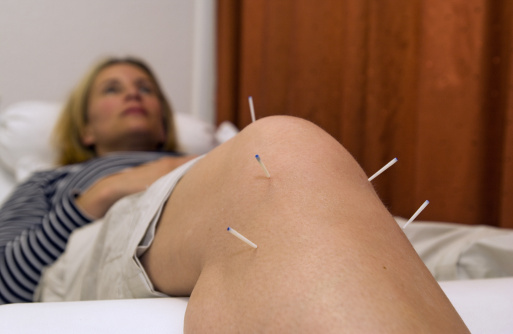Healthbeauty123.com – Many factors contribute to the development of chronic knee pain. Most of these conditions are related to inflammatory and degenerative processes. They range from dull aching pain to bursting and pulling. Symptoms can occur at any point, including while walking, running, or doing any type of physical activity. If you have chronic knee pain, it is important to consult with a doctor to determine the exact cause. If the pain persists over a longer period of time, you should seek treatment for the condition.
Symptoms of Chronic Knee Pain Discomfort
Symptoms of chronic knee pain can be acute or chronic. Acute pain usually begins as a rash or flare-up, and then subsides when the underlying cause of the injury heals. In contrast, chronic pain usually progresses over weeks and becomes a problem that must be treated. The symptoms of chronic knee discomfort should be thoroughly evaluated, and imaging or lab tests may be ordered to rule out other conditions.
Unlike acute pain, chronic pain doesn’t go away on its own. Even if the initial cause of the pain has healed or disappeared, the resulting swelling and pain remain. Different causes of chronic knee pain require different types of diagnostic tests. Your doctor may recommend blood work, X-rays, or MRI. The results of these tests will indicate the underlying cause. If these findings are negative, your doctor may suggest a treatment option for the pain.

As a result, treatment for chronic knee pain can be individualized. The first step in determining a treatment plan is to determine the cause of your condition. There are several reasons why chronic knee pain may develop, and accurate diagnosis is essential to addressing the problem effectively. There are also possible imaging and lab tests to determine the underlying condition. You should seek treatment as soon as you experience the onset of symptoms. Your doctor will be able to guide you to the best treatment for your condition.
Proper Diagnosis and Treatment of Chronic Knee Pain
If your pain persists after a period of rest or after an extended period of activity, you may have osteoarthritis. If your pain is constant and does not respond to rest, you may have osteoarthritis. This is a degenerative disease of the knee that affects the bones and can lead to fractures. You should consult your doctor for proper diagnosis and treatment for chronic knee pain. You should seek medical advice for chronic knee pain.
Chronic knee pain may be caused by a direct blow to the knee, sudden change of direction, or traumatic knee injuries. Often, it is associated with overuse, such as running and climbing stairs. Other causes include diseases that are caused by the body’s immune system. Patients should be tested for osteoporosis to ensure that the symptoms are unrelated to a physical injury. It is essential to see a doctor if you have pain in your knee.

NSAIDS (nonsteroidal anti-inflammatory drugs) are a common treatment for chronic knee pain. NSAIDs reduce painful inflammation and are safer than narcotic opioids. NSAIDs include ibuprofen, naproxen, celecoxib, and meloxicam. NSAIDS can be applied topically to the knee, which is ideal for elderly patients. They can be very effective in relieving the pain caused by chronic knee problems.
Recommended Treatment According to Condition
There are many causes of chronic knee pain. Some of these include an acute injury and a traumatic event. Acute pain, on the other hand, may last for a few weeks or months, while chronic pain will continue for years. It is best to seek treatment immediately, however, to avoid further damage. A physician will be able to determine the exact cause of your knee pain and recommend the most appropriate treatment. It is important to find the right care for your condition, and to be aware of any symptoms that could be indicative of a disease or condition.

Some types of chronic knee pain may be caused by traumatic injuries, which have already occurred. In such cases, a diagnosis of chronic knee pain must be made before any further treatment is prescribed. Nonsteroidal anti-inflammatory drugs are often prescribed to treat this type of pain, but they can also be used to diagnose various other medical problems. Among these causes, trauma, injury, and medical conditions can all cause knee pain, and it is important to seek the right kind of care as soon as possible.
Reference:






